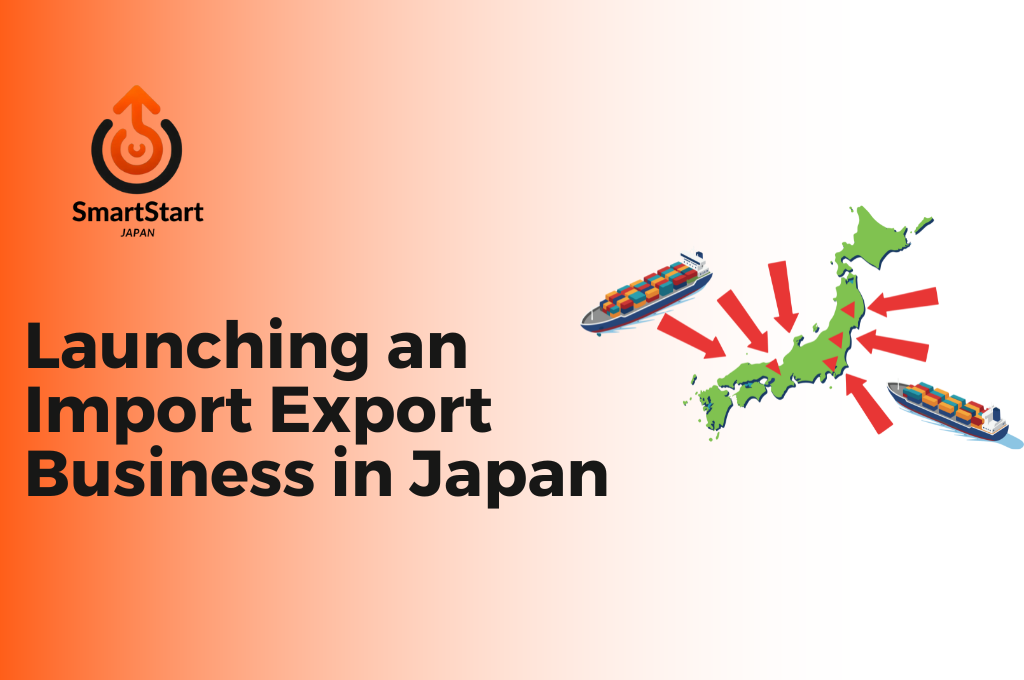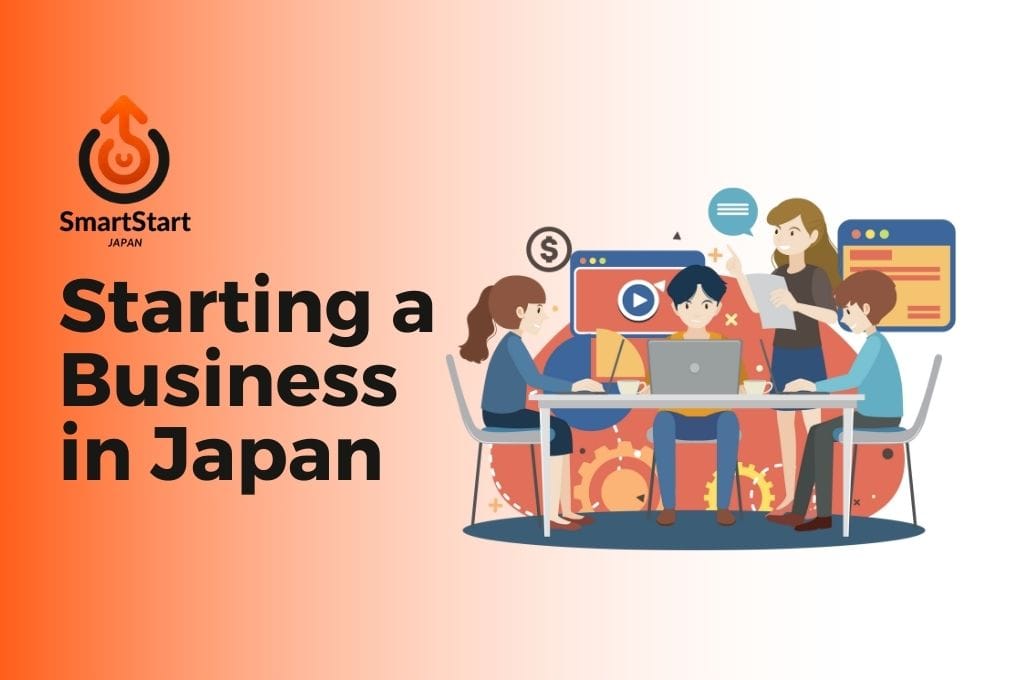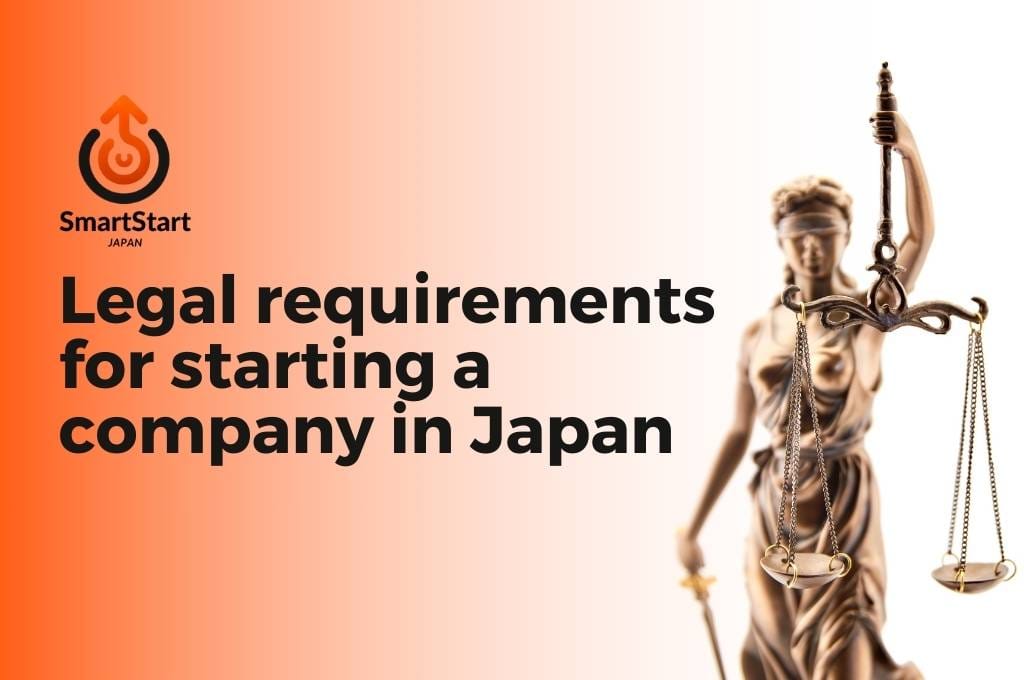Key Takeaways
- Always identify the correct license type for your products: general import, specialized, or controlled substances.
- Regulated products need extra licensing (Food, Cosmetics, Electronics, Alcohol)
- Start license applications immediately after incorporation—don’t wait until products are ready. Certifications take 1-6 months depending on product type.
- Required documents include corporate registration, import/export declarations, invoices, bills of lading, and certifications.
- Working with customs brokers or agencies like SmartStart Japan can simplify licensing and reduce delays.
- Exporting from Japan requires checking for restrictions under the Foreign Exchange and Foreign Trade Act.
- Maintaining compliance builds credibility and avoids fines, shipment delays, or confiscation of goods.
You’ve incorporated your company in Japan (if you haven’t, check our incorporation guide). Now what? Before you can legally import or export goods, you need to understand Japan’s licensing requirements. Most entrepreneurs overcomplicate this. You probably don’t need as many licenses as you think—but the ones you do need are critical. This guide cuts through the confusion and tells you:
- Exactly which licenses apply to YOUR products
- How much each license costs
- How long the application takes
- Step-by-step instructions to apply
Whether you plan to bring foreign goods into Japan or export Japanese products overseas, completing these tasks will prepare you to begin importing and exporting smoothly.
Do You Need a Special License? Quick Reference
| What You’re Importing | License Needed? | Cost | Timeline |
| Clothing, accessories, home goods | No | ¥0 | — |
| Books, stationery, toys (non-electrical) | No | ¥0 | — |
| Electrical products (anything with a plug) | PSE certification | ¥150,000-¥800,000/model | 1-6 months |
| Wireless devices (Bluetooth, WiFi) | Giteki certification | ¥300,000-¥800,000/model | 2-4 months |
| Food & beverages | Import notification + license | ¥50,000-¥200,000 | 2-6 weeks |
| Cosmetics | Manufacturing/Sales license | ¥200,000-¥500,000 | 4-8 weeks |
| Dietary supplements | Depends on claims | ¥50,000-¥500,000 | 2-8 weeks |
| Alcohol | Liquor tax license | ¥150,000-¥700,000 | 4-6 weeks |
| Pharmaceuticals/medical devices | MAH license | ¥600,000-¥2,500,000+ | 6-18 months |
| Chemicals | CSCL registration | ¥250,000-¥3,000,000+ | 3-12 months |
| Plants, seeds | Phytosanitary certificate | ¥7,000-¥30,000/shipment | 1-2 weeks |
| Used goods (for resale) | Secondhand dealer license | ¥19,000-¥69,000 | 40-60 days |
Key insight: If you’re importing general consumer goods like clothing, accessories, or home decor, you only need basic customs registration. No special licenses required.

General Requirements: What Everyone Needs
1. NACCS Registration (Customs System Access)
What it is: Japan’s electronic customs clearance system. Required to process any import/export shipment.
Recommended approach: Work with a Customs Broker
- Broker registers you in the NACCS system
- You get an importer/exporter code
- Broker handles all customs paperwork
- Cost: ¥5,000-¥15,000 setup + ¥15,000-¥50,000 per shipment
- Timeline: 3-5 days
Note: Advanced users with Japanese fluency can register directly for ¥30-50K setup, but this is rarely worth the complexity for new businesses.
2. Customs Broker Selection
| Major Customs Brokers in Japan | Pricing Structure | Best Fit |
| Nippon Express | Import Fee: ¥8,000 – ¥12,000 Export Fee: ¥6,000 – ¥10,000 Documentation Fee: Usually included Inspection Fee (If needed): Varies by shipment | Best for big companies with lots of shipments |
| Kintetsu World Express | Import Fee: ¥8,600 (≤¥200k) – ¥11,800 (>¥200k) Export Fee: ¥8,600 (≤¥200k) – ¥11,800 (>¥200k) Documentation Fee: ¥3,000 per declaration Inspection Fee (If needed): Min. ¥9,500 (air/LCL)¥40,000 (FCL) | Good for manufacturers (like cars and electronics) and urgent shipments. |
| Kamigumi | Import Fee: ¥8,000 – ¥12,000 Export Fee: ¥6,000 – ¥10,000 Documentation Fee: Usually included Inspection Fee (If needed): Varies by shipment | Ideal for heavy industries and businesses utilizing Kobe/Osaka ports. |
| Yusen Logistics | Import Fee: ¥8,000 – ¥12,000 Export Fee: ¥6,000 – ¥10,000 Documentation Fee: Usually included Inspection Fee (If needed): Varies by shipment | Good for large shippers and companies needing sea-air or automotive logistics. |
| DHL Global Forwarding | Import Fee: ¥8,600 (≤¥201k) – ¥11,000 (>¥201k) Export Fee: ¥4,200 (≤¥201k) – ¥5,000 (>¥201k) Documentation Fee: ¥3,000 – ¥6,000 Inspection Fee (If needed): Varies by shipment | Best for small and medium businesses, startups, and those who want easy, flexible service. |
What customs brokers do:
- Register you in NACCS
- Classify your products (HS codes: 6-10 digit numbers used by customs worldwide that categorize and identify every traded product)
- Prepare customs declarations
- Pay duties on your behalf
- Coordinate inspections
- Arrange delivery
Total cost for general setup: ¥20,000-¥65,000 (NACCS + broker setup)
Timeline: 1 week

Product-Specific Licenses: Detailed Breakdown
Food and Beverages
What you need:
- MHLW import notification (every shipment)
- Food Business Operator’s License (if selling in Japan)
- Cost: ¥50,000-¥200,000 initial setup
- Ongoing: ¥5,000-¥30,000 per shipment
- Who approves: Ministry of Health, Labour and Welfare
- Note: 10-30% of food shipments get randomly inspected
Cosmetics
What you need:
- Cosmetics Manufacturing/Sales License
- Product registration for each item
- Qualified supervisor (pharmaceutical background)
- Cost: ¥200,000-¥500,000 for first 5 products
- Who approves: MHLW through prefectural offices
- Critical: Must have licensed supervisor on staff or as consultant
Electrical Products (PSE)
What you need: PSE certification for each product model
Two types:
- Category A (hair dryers, TVs, microwaves): ¥300,000-¥800,000, 3-6 months
- Category B (most electronics): ¥100,000-¥300,000, 1-3 months
- Who approves: METI
- Note: Every model variation needs separate certification
Wireless Devices (Giteki)
What you need: Technical Standards Conformity Certification
- Cost: ¥300,000-¥800,000 per device model
- Timeline: 2-4 months
- Who approves: Ministry of Internal Affairs and Communications
- Critical: Selling devices without Giteki is a criminal offense
Alcohol
What you need: Liquor tax license from National Tax Agency (NTA)
Types:
- Retail (physical store): No volume limit
- Mail-order (online): Max 100 kiloliters/year
- Wholesale (B2B): No volume limit
- Cost: ¥150,000-¥700,000
- Timeline: 4-6 weeks
- Requirements: ~¥10M capital recommended, proper storage facility
- Approval rate: 70-80%
Used Goods
What you need: Secondhand Dealer License (古物商許可)
- Cost: ¥19,000
- Timeline: 40-60 days
- Who approves: Prefectural police
- Note: Even online-only businesses need this

How to Apply: Essential Steps
Step 1: Classify Your Products
Use HS codes to determine duties AND required licenses:
- Visit Japan Customs Tariff Database
- Search your product name
- Find the 6-10 digit code
Examples:
- Women’s cotton t-shirts → 6109.10 → No special license
- Bluetooth headphones → 8518.30 → Needs PSE + Giteki
- Organic tea → 0902.10 → Needs food import notification
Pro tip: When unsure, consult a customs broker. Misclassification is the #1 cause of delays.
Step 2: Gather Required Documents
Documents needed for ALL applications:
- Corporate registration certificate (登記事項証明書)
- Company seal certificate (印鑑証明書)
- Articles of Incorporation
- Representative director’s ID
- Business plan
- Office lease agreement
Product-specific additions:
- Food: Ingredient lists, manufacturing certificates, test reports
- Cosmetics: Formula sheets, safety assessments, supervisor qualifications
- Electrical: Technical specs, circuit diagrams, user manuals (Japanese)
- Chemicals: Safety data sheets, substance identity, intended use
Important: All foreign documents need certified Japanese translation (¥15,000-¥50,000)
Step 3: Submit Applications
Application processes vary by product type. Your customs broker or administrative scrivener will guide you through the specific requirements for your category. Key agencies include:
- Food: MHLW via FAINS online system (3-7 days for notification number)
- Cosmetics: Prefectural office (requires qualified supervisor first)
- Electrical/Wireless: METI testing labs (1-4 months testing time)
- Alcohol: Regional tax office (requires detailed business plan)
- Used Goods: Local police station
For detailed application procedures, contact SmartStart Japan or refer to our product-specific licensing guides.

Costs: What You’ll Actually Pay
Setup Costs by Business Type
Importing General Consumer Goods (No Special License)
- NACCS registration: ¥10,000
- Customs broker setup: ¥10,000
- Total: ¥20,000
Importing Food Products
- NACCS registration: ¥10,000
- FAINS registration: Free
- Initial product testing: ¥50,000-¥100,000
- Food Business License: ¥20,000-¥50,000
- Total: ¥80,000-¥160,000
Importing Cosmetics (5 products)
- NACCS registration: ¥10,000
- Manufacturing/Sales License: ¥150,000-¥300,000
- Product registrations (5×): ¥50,000-¥150,000
- Qualified supervisor (annual): ¥200,000
- Total Year 1: ¥410,000-¥660,000
Importing Electronics (2 models with Bluetooth)
- NACCS registration: ¥10,000
- PSE certification (2× models): ¥200,000-¥600,000
- Giteki certification (2× models): ¥600,000-¥1,600,000
- Total: ¥810,000-¥2,210,000
Importing Alcohol
- NACCS registration: ¥10,000
- Liquor tax license: ¥30,000
- Facility setup: ¥100,000-¥500,000
- Total: ¥140,000-¥540,000
Ongoing Costs
Per shipment:
- Customs broker: ¥15,000-¥50,000
- Food testing (if required): ¥30,000-¥100,000
- Import duties: 0-20% of value (depends on product)
- Consumption tax: 8-10% of (value + duties)
Annual:
- NACCS system fees: ¥30,000-¥100,000
- License renewals: ¥10,000-¥50,000
- Cosmetics supervisor: ¥120,000-¥360,000
- Compliance monitoring: ¥50,000-¥200,000
Timelines: How Long It Takes
| Business Type | Minimum Timeline | Typical Timeline | Maximum Timeline |
| General goods | 2 weeks | 3 weeks | 4 weeks |
| Food/beverages | 4 weeks | 6 weeks | 10 weeks |
| Cosmetics | 8 weeks | 12 weeks | 16 weeks |
| Alcohol | 6 weeks | 8 weeks | 12 weeks |
| Electrical (PSE only) | 8 weeks | 12 weeks | 24 weeks |
| Electronics (PSE + Giteki) | 12 weeks | 20 weeks | 28 weeks |
| Chemicals | 12 weeks | 24 weeks | 52 weeks |
| Pharmaceuticals | 24 weeks | 52 weeks | 104 weeks |

Critical Mistakes to Avoid
Mistake #1: Starting to Import Before Getting Licenses
The problem: Goods arrive at port, but you don’t have required permits. Result: Confiscation or expensive storage fees while scrambling for licenses.
How to avoid: Complete ALL license applications before placing your first order. Build a 2-6 month buffer for regulated products.
Mistake #2: Incorrect Product Classification
The problem: Using wrong HS code means wrong duty rate AND potentially missing required licenses.
How to avoid: Use Japan Customs tariff database, cross-check with customs broker, verify with JETRO if uncertain.
Mistake #3: Underestimating Certification Timelines
The problem: Planning to launch in 3 months, but PSE certification takes 5 months. Business launch delayed.
How to avoid: Start the certification process immediately after company incorporation. Don’t wait until products are ready to ship.
Conclusion
Licensing and compliance form the foundation of a successful import-export business in Japan. The key is starting early—begin license applications immediately after incorporation, not when your products are ready to ship. For general consumer goods, the process is straightforward: register with NACCS through a customs broker and start importing within 2-3 weeks. For regulated products, budget 2-6 months for approvals.
SmartStart Japan’s team is ready to help you streamline your setup and focus on growing your business. Contact us to discuss your specific import-export needs.



